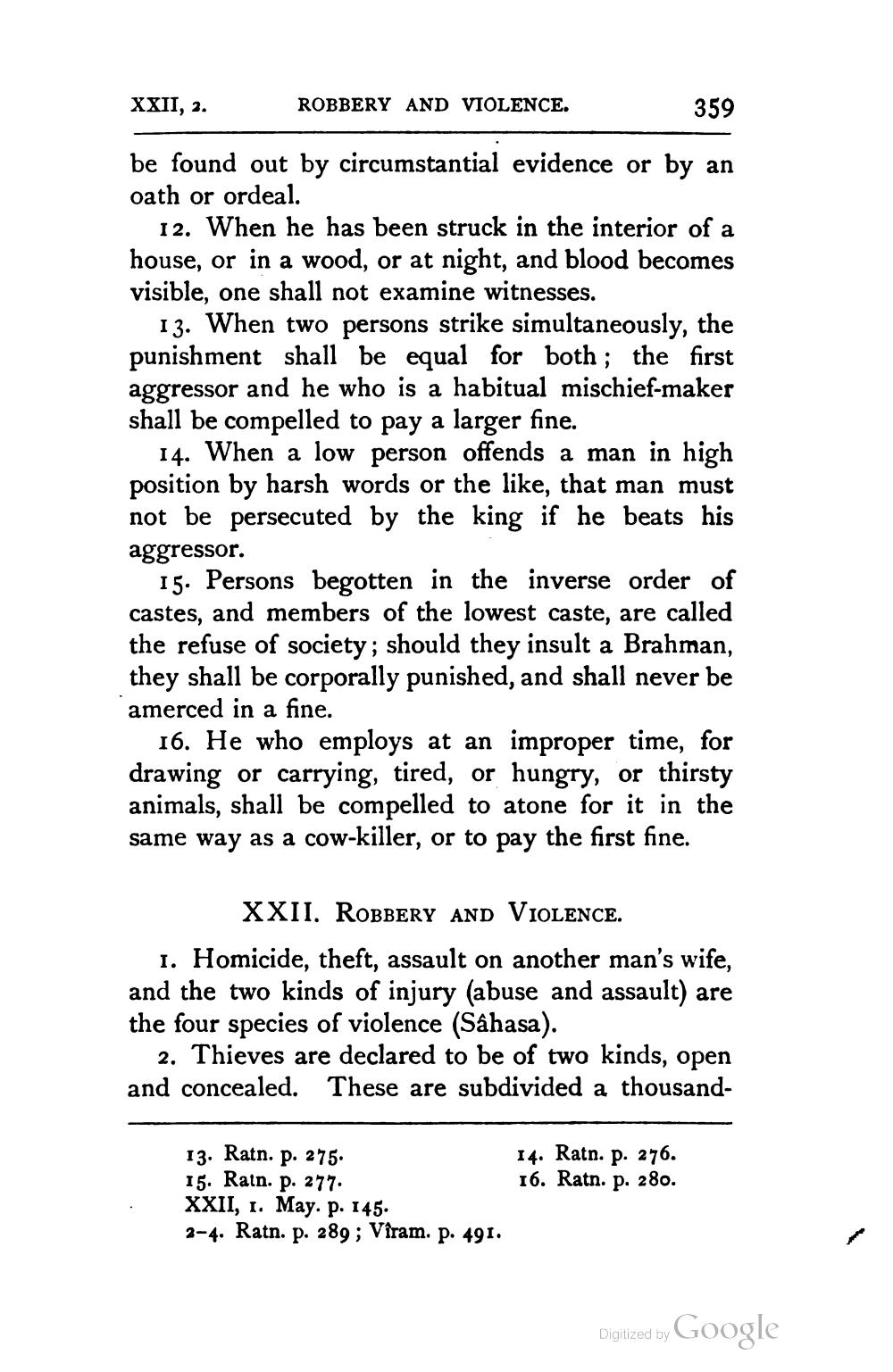________________
XXII, 2.
ROBBERY AND VIOLENCE.
359
be found out by circumstantial evidence or by an oath or ordeal.
12. When he has been struck in the interior of a house, or in a wood, or at night, and blood becomes visible, one shall not examine witnesses.
13. When two persons strike simultaneously, the punishment shall be equal for both; the first aggressor and he who is a habitual mischief-maker shall be compelled to pay a larger fine.
14. When a low person offends a man in high position by harsh words or the like, that man must not be persecuted by the king if he beats his aggressor.
15. Persons begotten in the inverse order of castes, and members of the lowest caste, are called the refuse of society; should they insult a Brahman, they shall be corporally punished, and shall never be amerced in a fine.
16. He who employs at an improper time, for drawing or carrying, tired, or hungry, or thirsty animals, shall be compelled to atone for it in the same way as a cow-killer, or to pay the first fine.
XXII. ROBBERY AND VIOLENCE. 1. Homicide, theft, assault on another man's wife, and the two kinds of injury (abuse and assault) are the four species of violence (Sahasa).
2. Thieves are declared to be of two kinds, open and concealed. These are subdivided a thousand
14. Ratn. p. 276. 16. Ratn. p. 280.
13. Ratn. p. 275. 15. Rain. p. 277. XXII, 1. May. p. 145. 2-4. Ratn. p. 289; Viram. p. 491.
Digitized by Google




